 Continental Film Review ties modern cinema up in a tidy little package. 
Above and below, the cover and assorted interior pages from Continental Film Review, with all the rare imagery and erudite commentary from the European cinema scene readers had come to expect. The cover features German actress Brigitte Skay bound with rope, and those of note inside include Anna Gaël, Romy Schneider, Alain Delon, Serge Gainsbourg, Jane Birkin, and Edwige Fenech. Skay and Gaël are featured because of their roles in the 1969 sci-fi film Zeta One, aka The Love Factor, which it happens we discussed way back in 2010. Shorter version: Barbarella it ain't. Continental Film Review had a secondary focus on non-performance visual arts. This issue looks at animation from Sweden and talks about some hot illustrators of the time, including Jan Lenica and Per Ahlin, drawing comparisons between them and famed painters like René Magritte. All of that and more in thirty-plus scans. 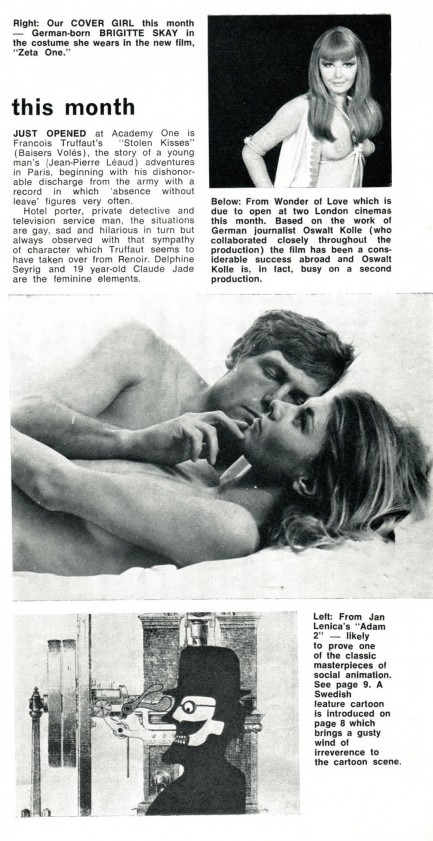 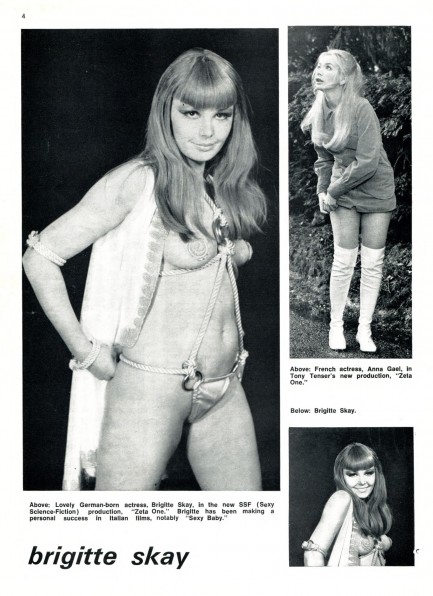  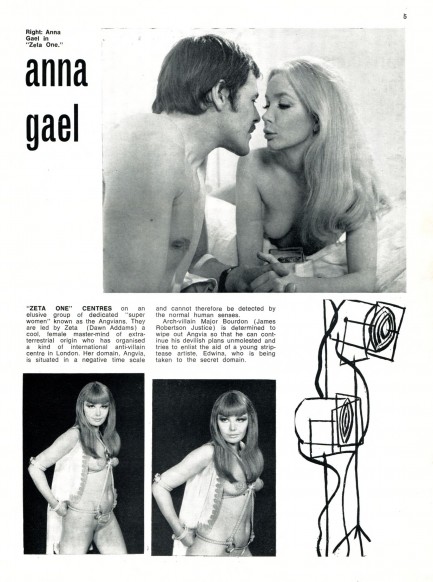 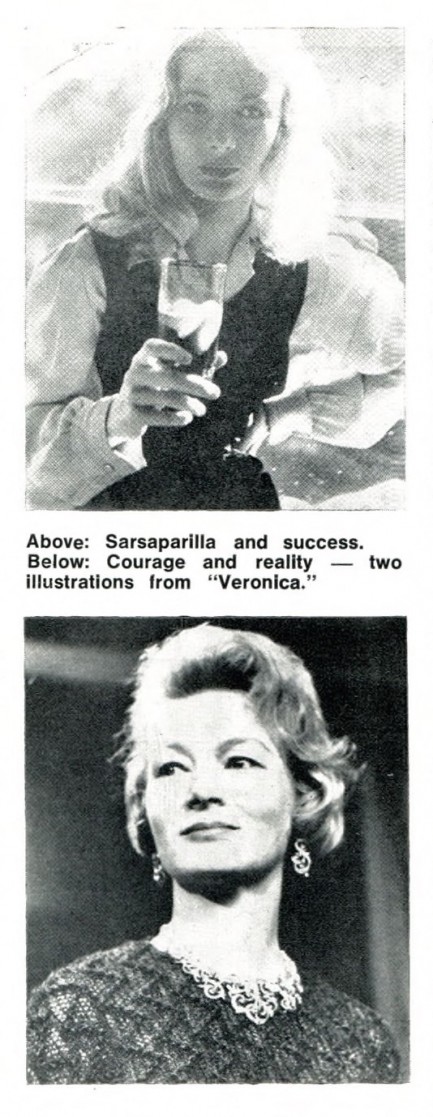 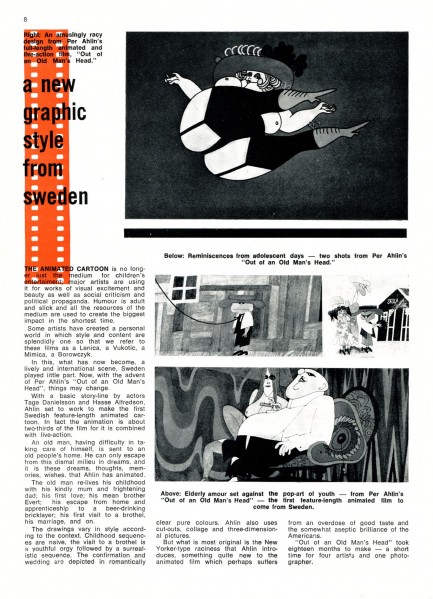 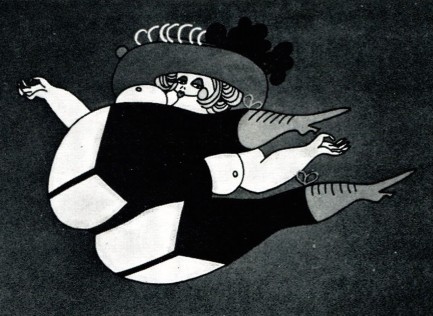 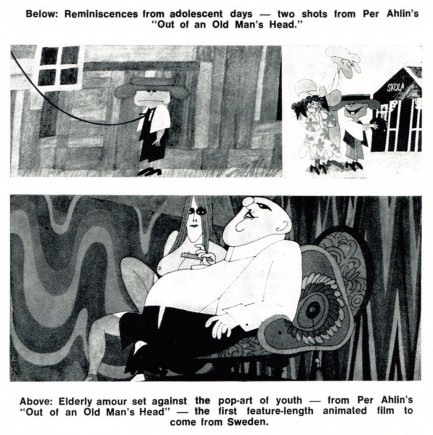  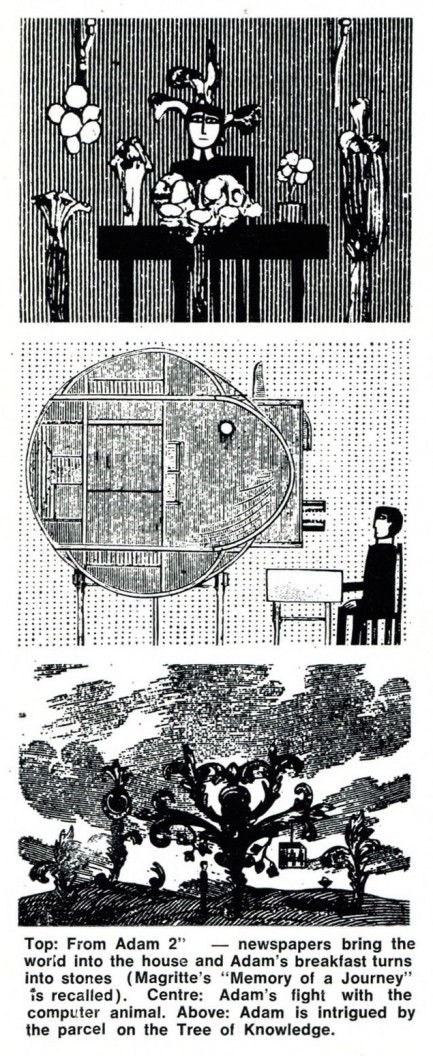 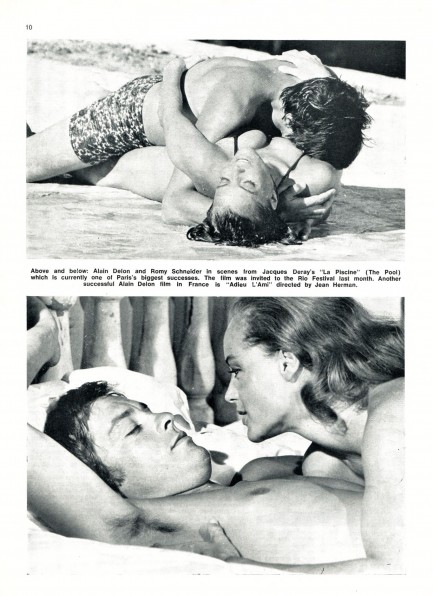 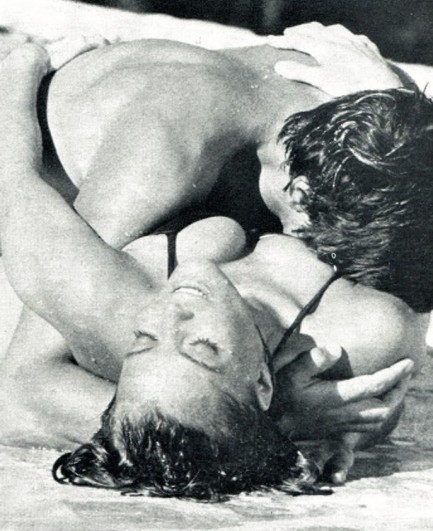 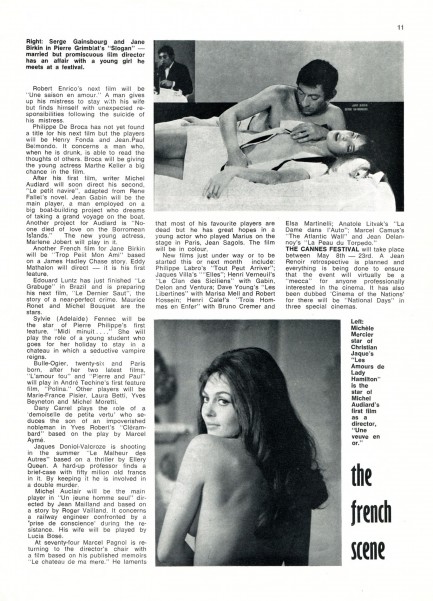 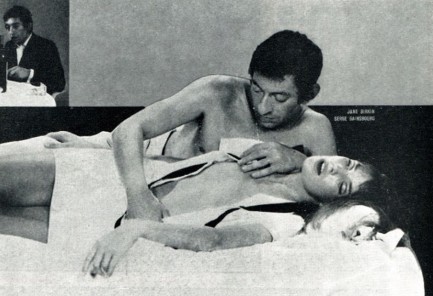 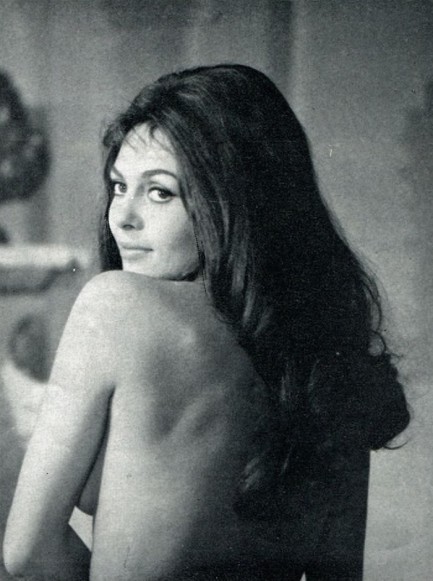 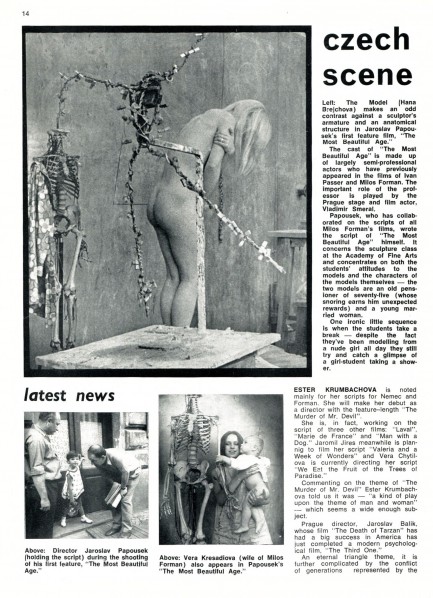 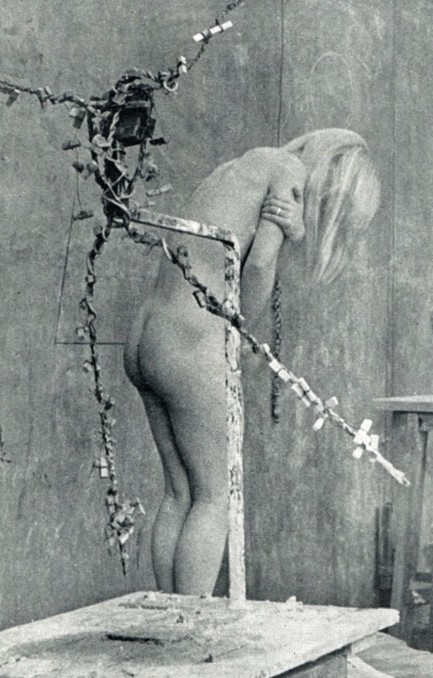 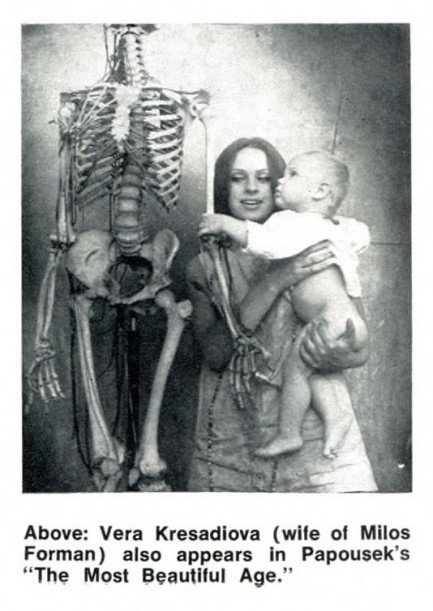 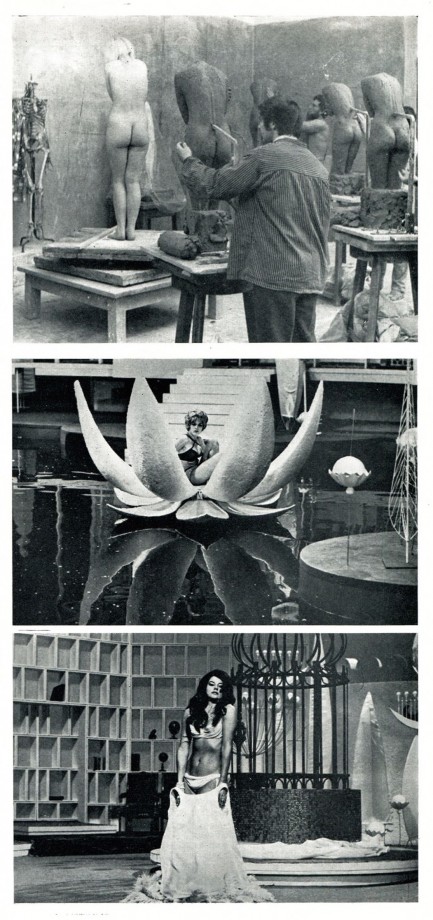 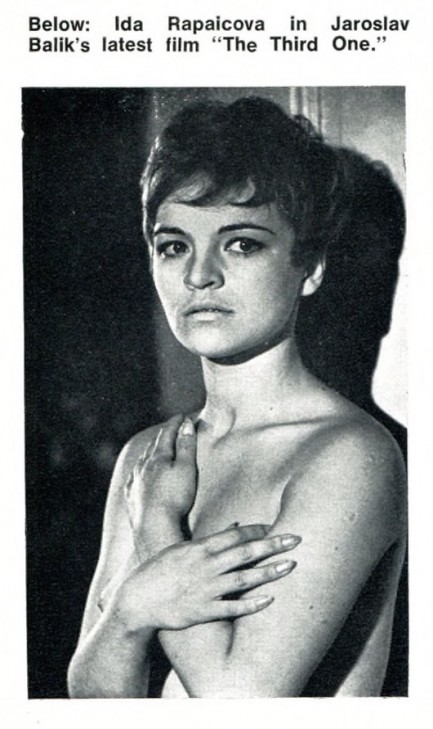 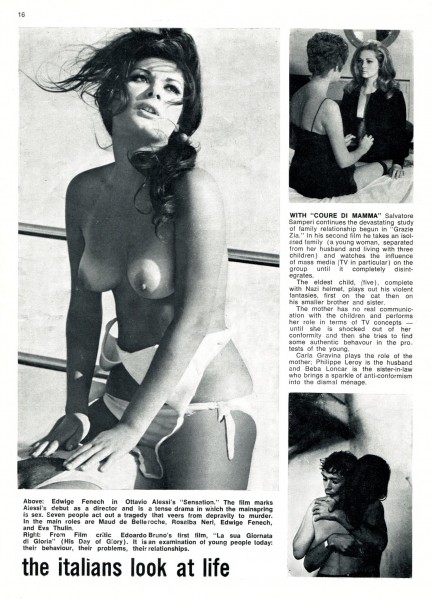 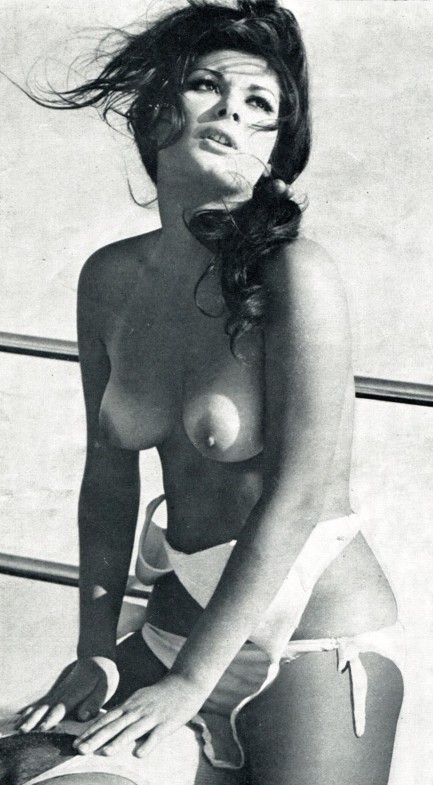 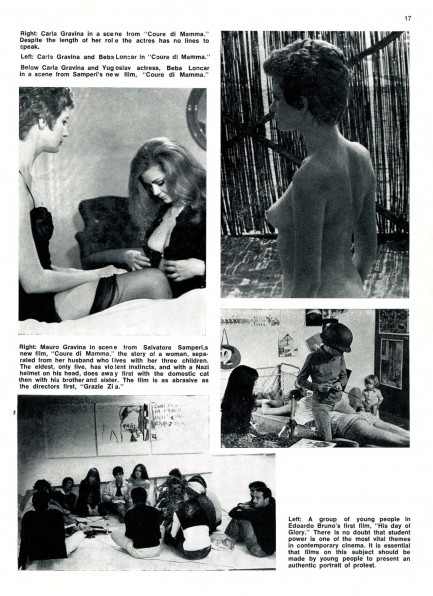 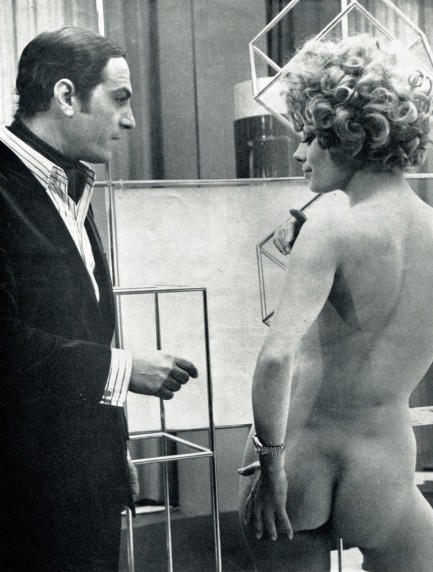 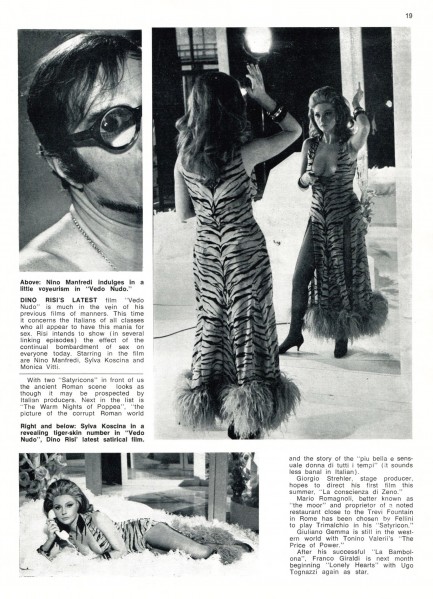 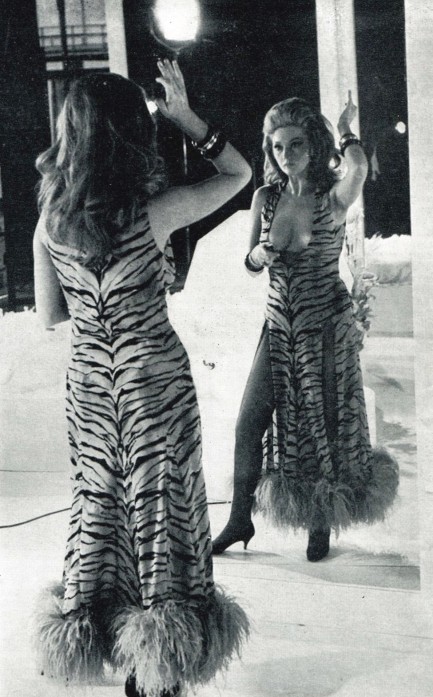 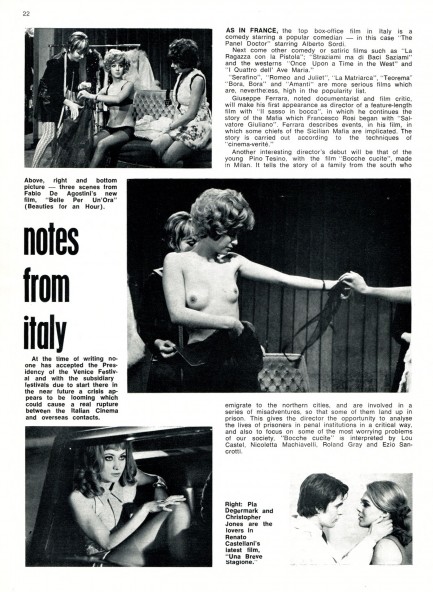 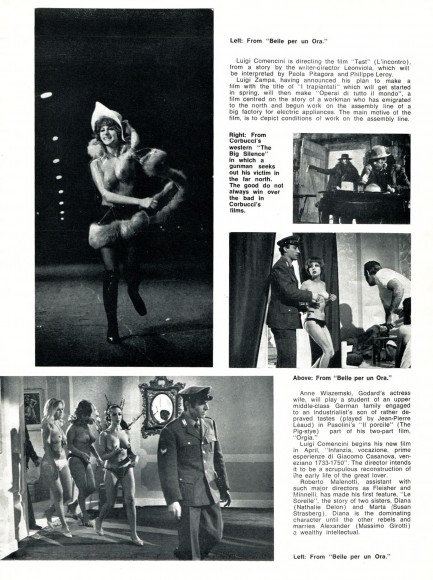 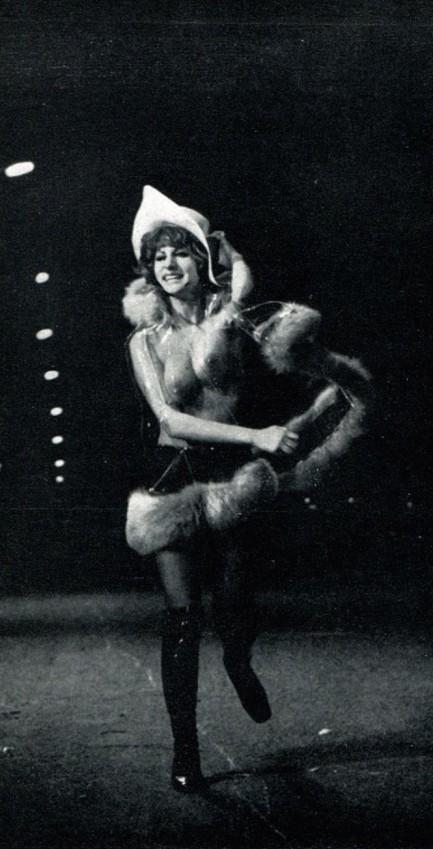 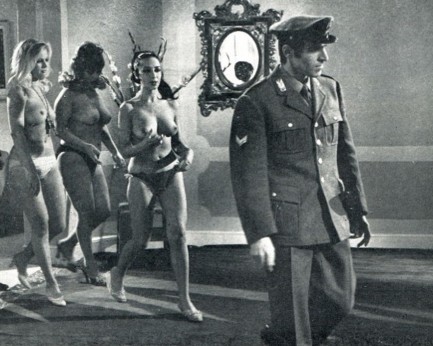 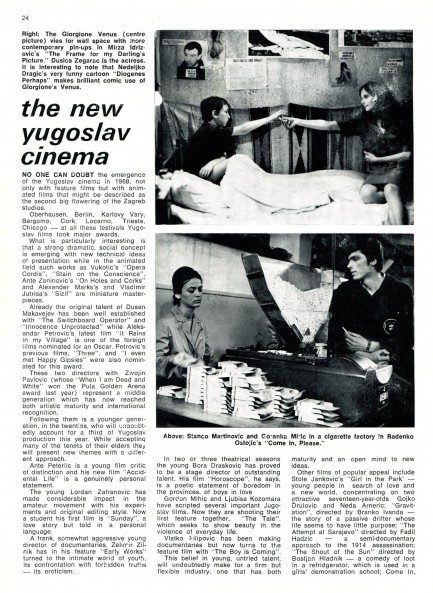 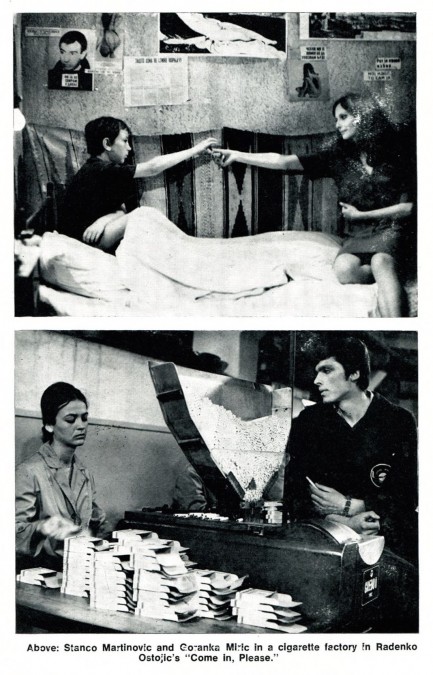 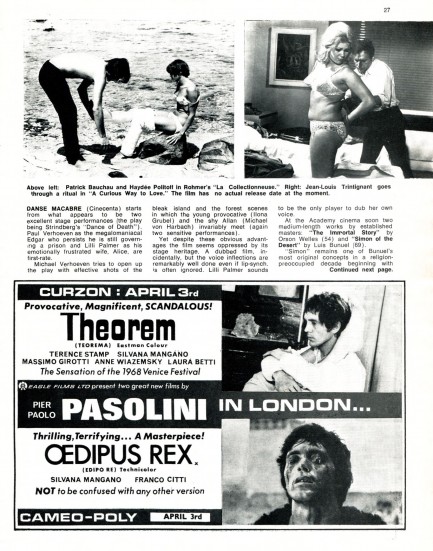 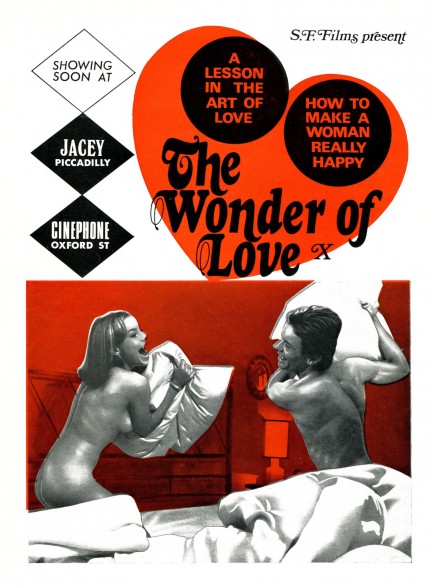
 If you’re going to have an empty life, at least make it a beautiful one. 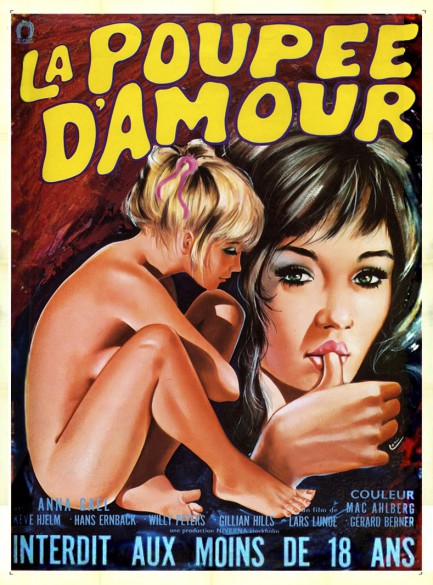
La poupée d’amour played in the U.S. by the silly title Take Me, Love Me, but was originally released in Sweden as Naná, after the Emile Zola novel from which it’s adapted. Director Mac Ahlberg and cinematographer Andréas Winding deserve credit for making the film look fantastic, star Anna Gaël is certainly beautiful, and the cabaret numbers are entertainingly staged, but on the whole we found this one a bit tedious. The movie is basically ’70s arthouse porn and, thanks to some coupling by Gaël’s body double, still qualifies today as adult cinema, but only barely. Zola’s Naná ended up covered with pustules and dying in agony; this movie wouldn’t dare harsh on its own groovy high to that extent, but Gaël does find happiness elusive, as do her lovers. If you watch the movie you may find enjoyment elusive, but in purely visual terms, it’s a real treat. The Belgian promo poster, also a treat, was painted by Loris, an illustrator whose online presence is small, which means we can’t tell you anything about him/her—not even a full name. But he/she did paint other nice promos, and we may dig some of those up later. La poupée d’amour premiered in France/Belgium today in 1970. 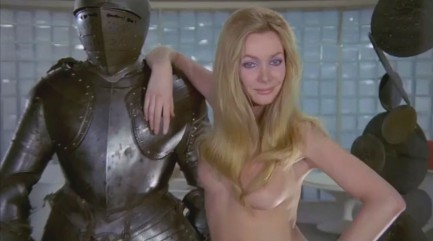 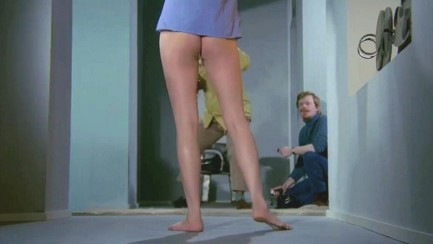 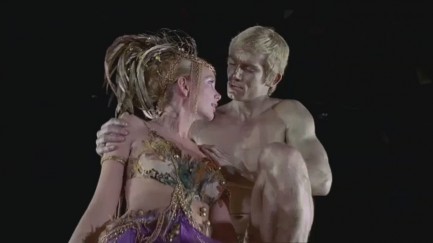  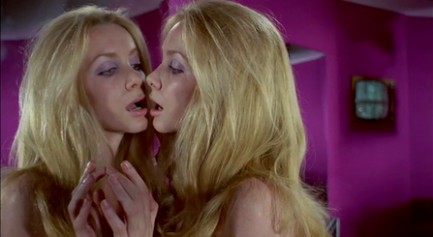 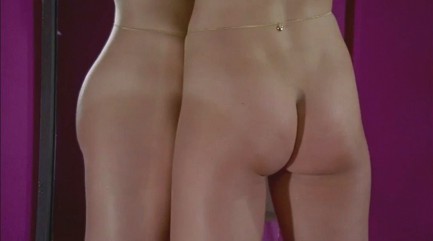 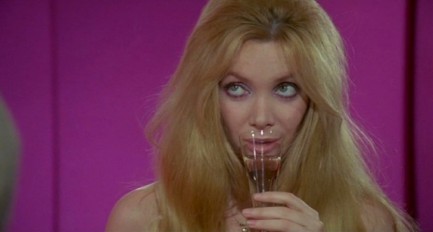 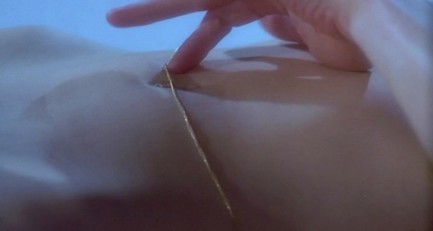 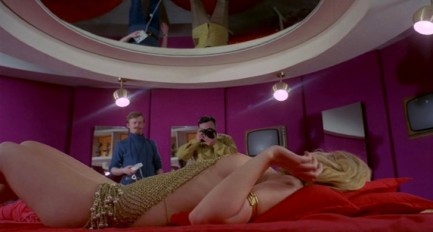  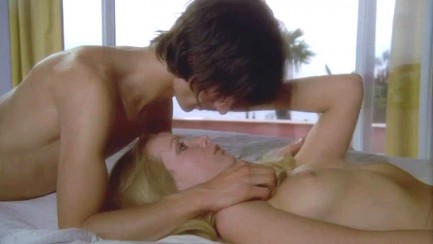   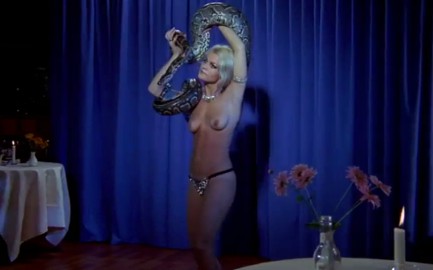 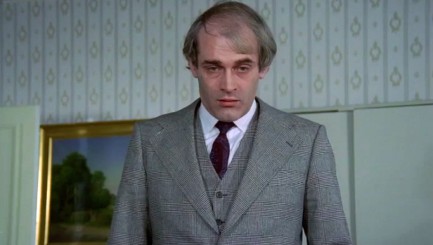 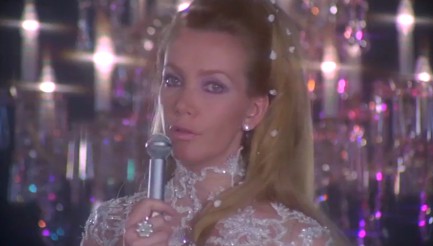 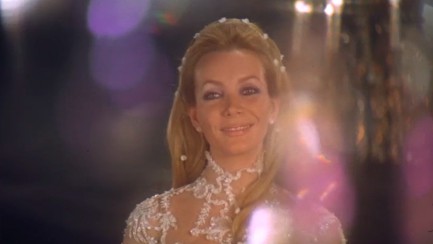
 Houston, we have a negative on that orbit trajectory. 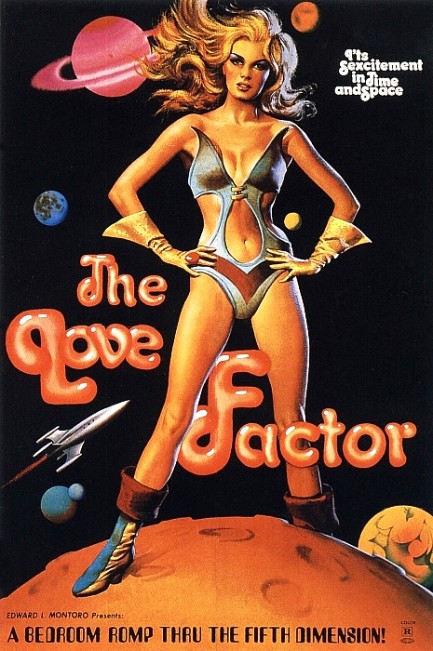 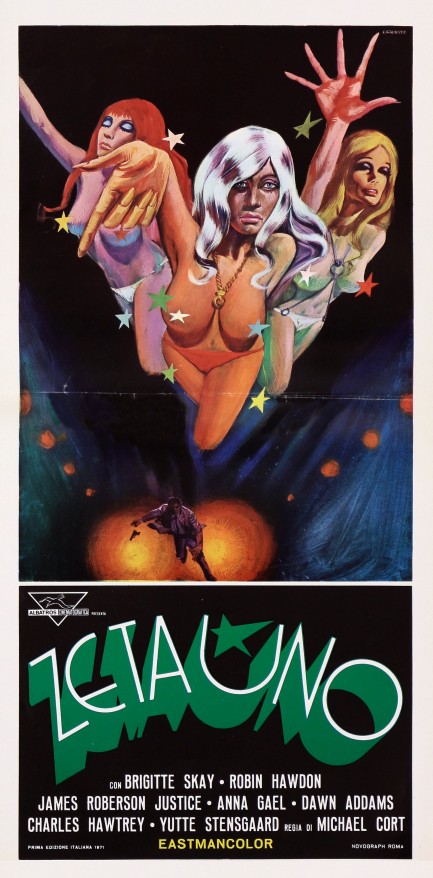 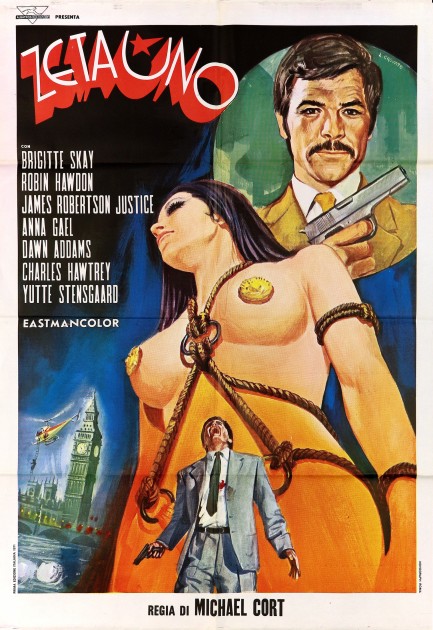
Above are three promo posters for the British sci-fi romp The Love Factor, aka Zeta One, aka Zeta Uno, and while it is not our intention to pose as film reviewers, when we watch these movies we can’t help but share our thoughts. We had high hopes this one would be a bit like Barbarella, and it is—if you can imagine an earthbound version made with a fraction of the budget and none of the sets or special effects. But we do dig the posters, the latter two of which were painted by Luciano Crovato, and we certainly have no problem with the likes of Yutte Stensgaard, Anna Gaël, Carol Hawkins, and Valerie Leon. In fact, the film is possibly worth a screening just to see Stensgaard in the scene where she burns a coq au vin. After making a nude sprint to save the doomed chicken, she returns to the bedroom and tells her companion, “The cock’s ruined.” Aspiring screenwriters take note—that’s how it’s done. And now below, for no other reason than because we found some cool photos, we have a feature we’re calling "The Women of The Love Factor." From top to bottom, you have Brigitte Skay, Hawkins, Stensgaard, Leon, and Gaël. Made in 1969, The Love Factor opened in the U.S. today in 1975.
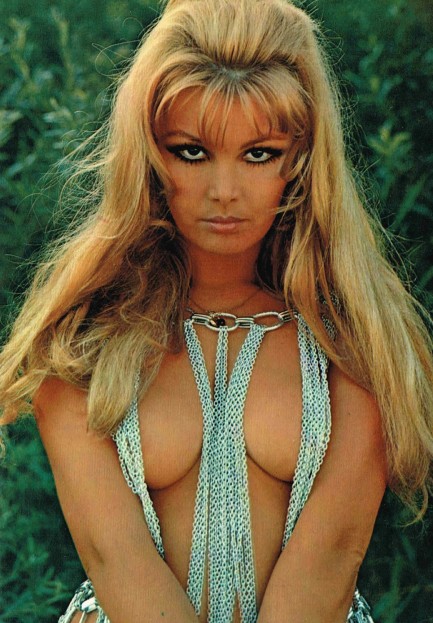 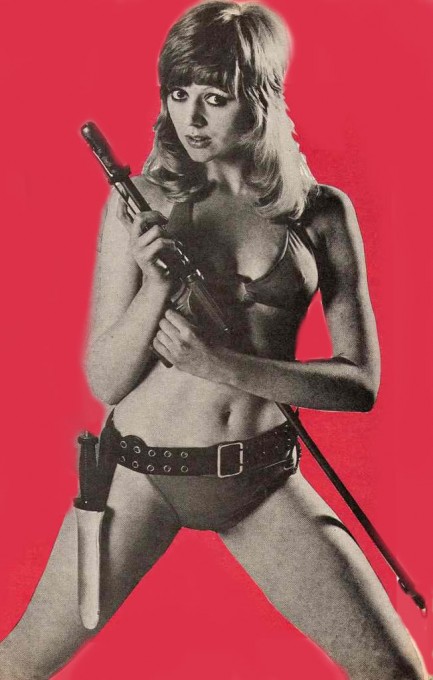 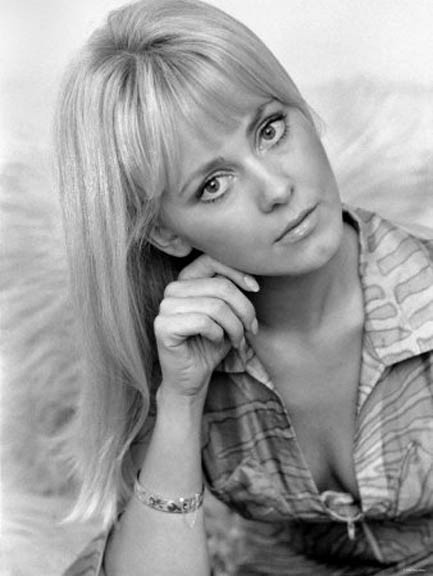 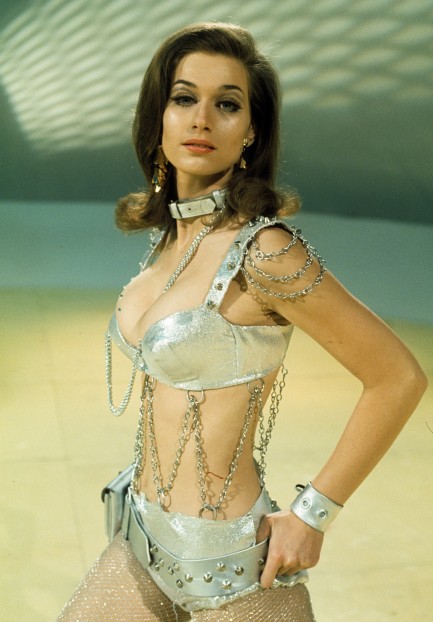 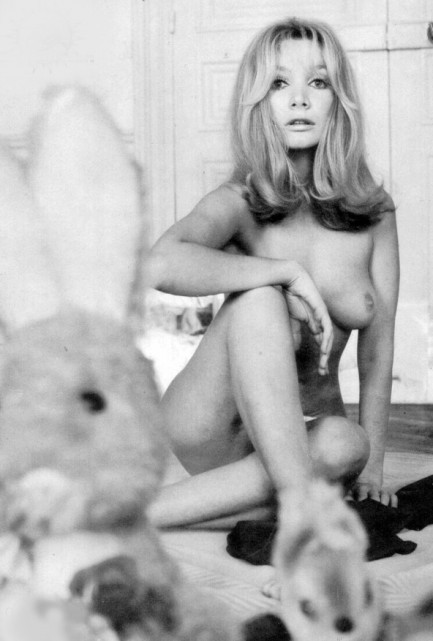
|
 |

The headlines that mattered yesteryear.
2003—Hope Dies
Film legend Bob Hope dies of pneumonia two months after celebrating his 100th birthday. 1945—Churchill Given the Sack
In spite of admiring Winston Churchill as a great wartime leader, Britons elect
Clement Attlee the nation's new prime minister in a sweeping victory for the Labour Party over the Conservatives. 1952—Evita Peron Dies
Eva Duarte de Peron, aka Evita, wife of the president of the Argentine Republic, dies from cancer at age 33. Evita had brought the working classes into a position of political power never witnessed before, but was hated by the nation's powerful military class. She is lain to rest in Milan, Italy in a secret grave under a nun's name, but is eventually returned to Argentina for reburial beside her husband in 1974. 1943—Mussolini Calls It Quits
Italian dictator Benito Mussolini steps down as head of the armed forces and the government. It soon becomes clear that Il Duce did not relinquish power voluntarily, but was forced to resign after former Fascist colleagues turned against him. He is later installed by Germany as leader of the Italian Social Republic in the north of the country, but is killed by partisans in 1945.
|

|
|

It's easy. We have an uploader that makes it a snap. Use it to submit your art, text, header, and subhead. Your post can be funny, serious, or anything in between, as long as it's vintage pulp. You'll get a byline and experience the fleeting pride of free authorship. We'll edit your post for typos, but the rest is up to you. Click here to give us your best shot.

|
|




































































































































